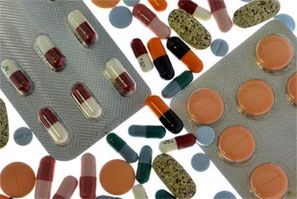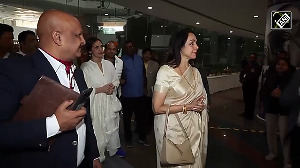 The body controlling the prices of essential medicines in India, the National Pharmaceutical Pricing Authority (NPPA), does not appear to be intimidated by the government asking it last month to withdraw its guidelines to bring 108 more drugs under price control, issued earlier in the year.
The body controlling the prices of essential medicines in India, the National Pharmaceutical Pricing Authority (NPPA), does not appear to be intimidated by the government asking it last month to withdraw its guidelines to bring 108 more drugs under price control, issued earlier in the year.
These are fast-selling drugs in the therapeutic areas of HIV/AIDS, cardiac diseases and diabetes.
The NPPA had used a section under the Drug (Prices Control) Order of 2013, which initially allowed it to fix the price of 348 drugs contained in the National List of Essential Medicines, to extend price control under "extraordinary circumstances".
Since the government does not appear to have bought its idea that extraordinary circumstances called for extending the scope of price control, the NPPA is now following the line that the scope of what is "essential" should be expanded and seeking to bring an additional large number of drugs under price control.
The case for keeping drug prices low and the case against price control are well known.
A large part of the money that the poor in India spend on healthcare goes to buy medicines, and this itself is the cause of 2.2 per cent of families going below the poverty line every year while combating medical emergencies, even though medicines in India are among the cheapest in the world.
On the other hand, price control is an outdated and inefficient administrative instrument, and governments in this day and age should try to find better ways of achieving goals of affordability so that even if used, price control is kept to a minimum.
The list of essential medicines has been prepared keeping in mind the model list of the World Health Organization in this regard, and if "essential" moves in the direction of "universal" then it becomes a contradiction in terms.
It is also a bit disingenuous to use the term "life-saving" as any new medicine to improve treatment of ailments such as cancer will be seen as life-saving.
To keep price control to a minimum, the government can act in two areas where it has not done so far.
There are several public sector pharmaceutical companies that are either half or virtually dead.
The government can revive these either through a change in management or the ownership pattern so that these companies can manufacture all the essential medicines that are needed.
This will be relatively easy, as they are not under patent and the process chemistry for them is well known.
If it is argued that the government is inherently incapable of running such manufacturing facilities efficiently, then the government can float tenders to select competent private firms to come forward and run them as contractors on a cost-plus basis. Another weapon in the hands of the government is bulk procurement of medicines for the public health services.
This exercise is riddled with corruption and state governments have to shoulder a large part of the blame. Costs in public health services are being kept low in many countries, particularly in western Europe that boasts of the best public health services in the world, by tough and efficient processes for procurement of medicines.
If purposeful action is taken in these two areas, it will go a long way in delivering affordable drugs to India's poor, sans the bureaucratic inefficiency and corruption that price control inevitably generates.











